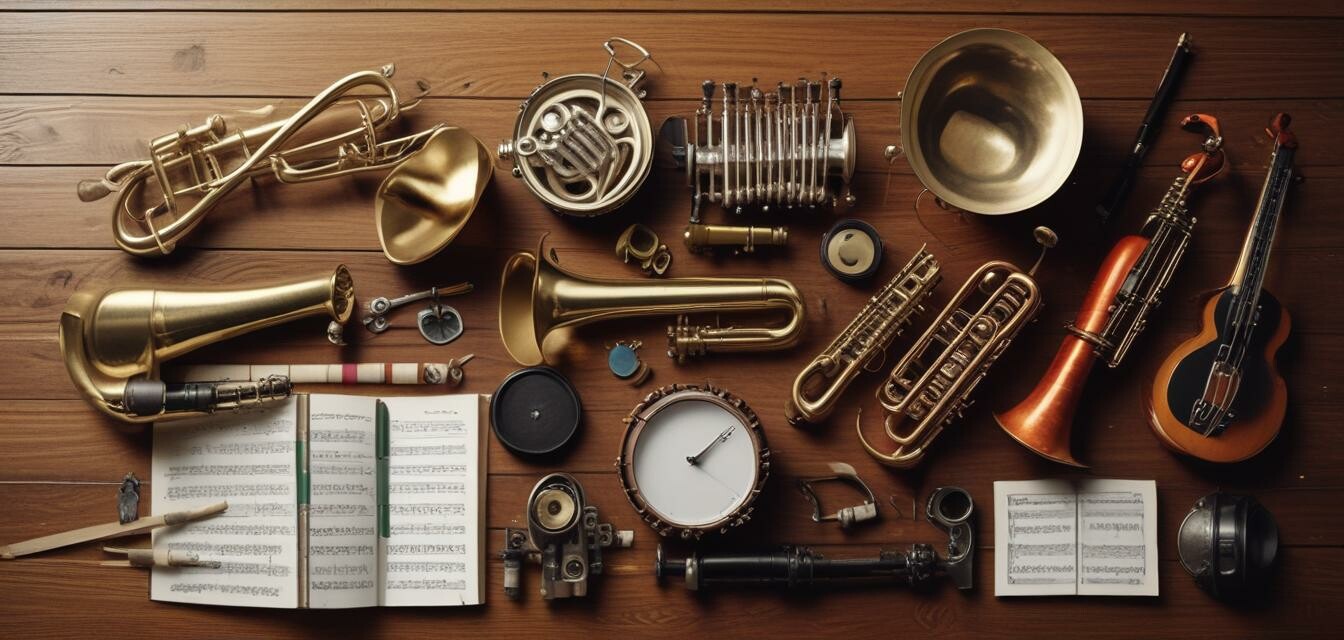
Essential Considerations for Buying Student Instruments
Key Takeaways
- Assess the skill level of the student when choosing an instrument.
- Consider the quality and durability of instruments.
- Understand the maintenance and care requirements of different instruments.
- Look for budget-friendly options that offer great value.
- Engage with teachers or experienced musicians for insights and recommendations.
Buying a musical instrument for a student is an exciting venture filled with possibilities. As parents and guardians, it’s crucial to make informed decisions that not only ensure the quality and durability of the instrument but also encourage the budding musician's passion. This practical guide outlines essential considerations when purchasing student instruments, ensuring you receive the best value as you nurture your aspiring musician.
Understanding the student’s needs
Before making a purchase, it's vital to understand the needs and interests of the student. Here are a few questions you may consider:
- What instrument is the student interested in?
- Is the student a beginner or does he/she have prior experience?
- What are the student's physical capabilities? (size, strength, etc.)
- Are there any specific requirements from their music teacher?
Factors to consider when purchasing instruments
Here are key factors you should think about:
- Type of Instrument: Determine if the student prefers brass, woodwind, string, or percussion.
- Size: Ensure the instrument is appropriate for the student's age and size.
- Weight: Consider how easy it is for the student to carry and play the instrument.
- Material: Different materials impact the quality, sound, and price of the instrument.
Quality vs. Cost
When choosing an instrument, it's essential to weigh quality against cost. Often, cheaper instruments compromise sound quality and durability, leading to additional costs in the long run. Take a look at the comparison below for guidance:
| Instrument Type | Budget Options | Mid-Range Options | High-End Options |
|---|---|---|---|
| Brass | Basic trumpets | Intermediate trumpets with better materials | Professional-grade trumpets |
| Woodwind | Basic flutes | Intermediate flutes with advanced features | Professional flutes |
| Strings | Starter violins | Quality violins with better sound | Custom violins |
| Percussion | Basic drum sets | Quality drum sets with additional features | Professional drumming gear |
Maintenance and care
After purchasing an instrument, it is essential to understand its maintenance. Here are key points regarding maintenance:
- Routine Cleaning: Instruments require regular cleaning to maintain sound quality.
- Proper Storage: Store instruments in appropriate cases to prevent damage.
- Regular Inspections: Check for any issues regularly, ensuring functionality.
Engaging with music educators
It is always beneficial to consult with music teachers or experienced musicians. They can provide valuable insights on the best instruments suitable for students, considering skill level and personal preferences. Moreover, teachers may have recommendations based on students' experiences in previous years. Understanding their perspectives can lead to better choices.
Conclusion
Buying a musical instrument for a student is a rewarding experience. By understanding the student’s needs, weighing quality versus cost, and considering maintenance, you can find an instrument that not only serves as an excellent educational tool but also cultivates a lifelong love for music. Embrace this journey and enjoy watching your aspiring musician thrive!
Tips for Beginners
- Start with renting an instrument if unsure of commitment.
- Visit local music shops for hands-on experience.
- Consider joining music communities for advice and support.
- Check out our instrument care and maintenance guidelines for helpful tips.
Pros
- Encourages creativity and self-expression.
- Enhances cognitive skills and discipline.
- Builds confidence through performance opportunities.
Cons
- Initial costs can be high.
- Maintenance requires time and effort.
- Learning curve may be challenging for some students.